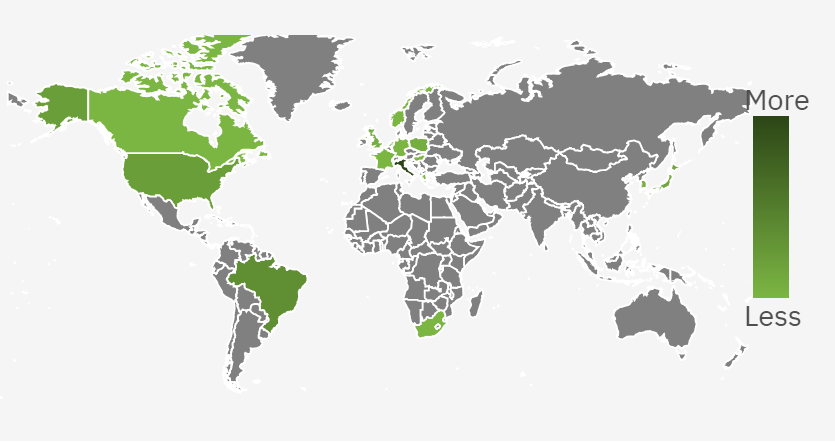Journal of Engineering Innovations & Technology
ISSN: 3006-6794 E-ISSN: 3006-6808
The Journal of Engineering Innovations & Technology (JEIT) is a premier, peer-reviewed journal dedicated to fostering the development and dissemination of innovations and advanced technologies in the field of engineering. Established with the aim of bridging the gap between industry and academia, JEIT serves as a platform for researchers, engineers, and practitioners to share their latest findings, developments, and applications in all branches of engineering.
Frequency: Quarterly Publication
Time to first decision: 6 Weeks
Submission to publication: 12 Weeks
Acceptance rate: 11%
Special Issue on AI-driven Engineering: Revolutionizing the Future of Technology and Design
Introduction
The Journal of Engineering Innovations & Technology (JEIT) is thrilled to announce a forthcoming special issue titled "AI-driven Engineering: Revolutionizing the Future of Technology and Design." This issue aims to showcase the latest advancements and research at the intersection of artificial intelligence (AI) and engineering, highlighting how AI technologies are transforming engineering disciplines, from design and manufacturing to infrastructure and beyond.
Scope and Themes
In an era where AI is becoming increasingly integral to solving complex engineering problems, this special issue will explore a broad range of topics, including but not limited to:
- AI in Design Automation: Leveraging AI to automate and optimize design processes, reducing time-to-market for engineering products.
- Machine Learning for Engineering Solutions: Applying machine learning algorithms to predict, analyze, and improve engineering outcomes.
- AI in Robotics and Automation: Innovations in robotics, including autonomous vehicles, drones, and manufacturing robots, driven by AI technologies.
- Data Analytics in Engineering: Using big data and analytics to drive decision-making and improve efficiency in engineering projects.
- AI for Sustainable Engineering: Employing AI to enhance sustainability in engineering practices, focusing on renewable energy, waste reduction, and green manufacturing.
- Intelligent Infrastructure Systems: Integrating AI into infrastructure management for smarter cities, including transportation, water management, and energy distribution.
- AI in Material Science: Discovering new materials and optimizing material properties using AI and machine learning models.
- AI in Engineering Education: Transforming the pedagogical approaches and learning experiences in engineering education through AI and virtual reality.
- Ethical Considerations in AI-driven Engineering: Addressing the ethical, legal, and social implications of integrating AI into engineering practices.
- Future Trends in AI and Engineering: Exploring the future landscape of engineering in an AI-dominated world, including the challenges and opportunities ahead.
Submission Guidelines
We invite researchers, practitioners, and scholars to submit original research articles, comprehensive reviews, case studies, and commentaries that contribute to the theme of AI-driven Engineering. Submissions should clearly articulate the novelty of the research, its application to engineering, and how it advances the state-of-the-art in AI-driven practices.
Continuous Call for Papers (Started in 2020)
In recognition of the rapidly evolving nature of AI-driven engineering research, this special issue will maintain an open and continuous call for papers. This approach ensures that the latest breakthroughs and innovations can be shared with the community in a timely manner.
Submission Process
Manuscripts should be submitted through JEIT’s online submission system, adhering to the journal's submission guidelines. During submission, authors should indicate that the manuscript is intended for the "AI-driven Engineering" special issue.
Guest Editors
This special issue will be overseen by a distinguished panel of guest editors, experts in the fields of AI and engineering, ensuring the high quality and relevance of accepted papers.
Conclusion
The "AI-driven Engineering" special issue aims to be a cornerstone collection for academics, industry professionals, and policymakers interested in the transformative potential of AI in engineering. We look forward to your contributions and to advancing the dialogue on how AI technologies will continue to shape the future of engineering.
For further information, submission guidelines, and updates, please visit the JEIT website or contact the editorial office. Join us in exploring the innovative world of AI-driven engineering!






